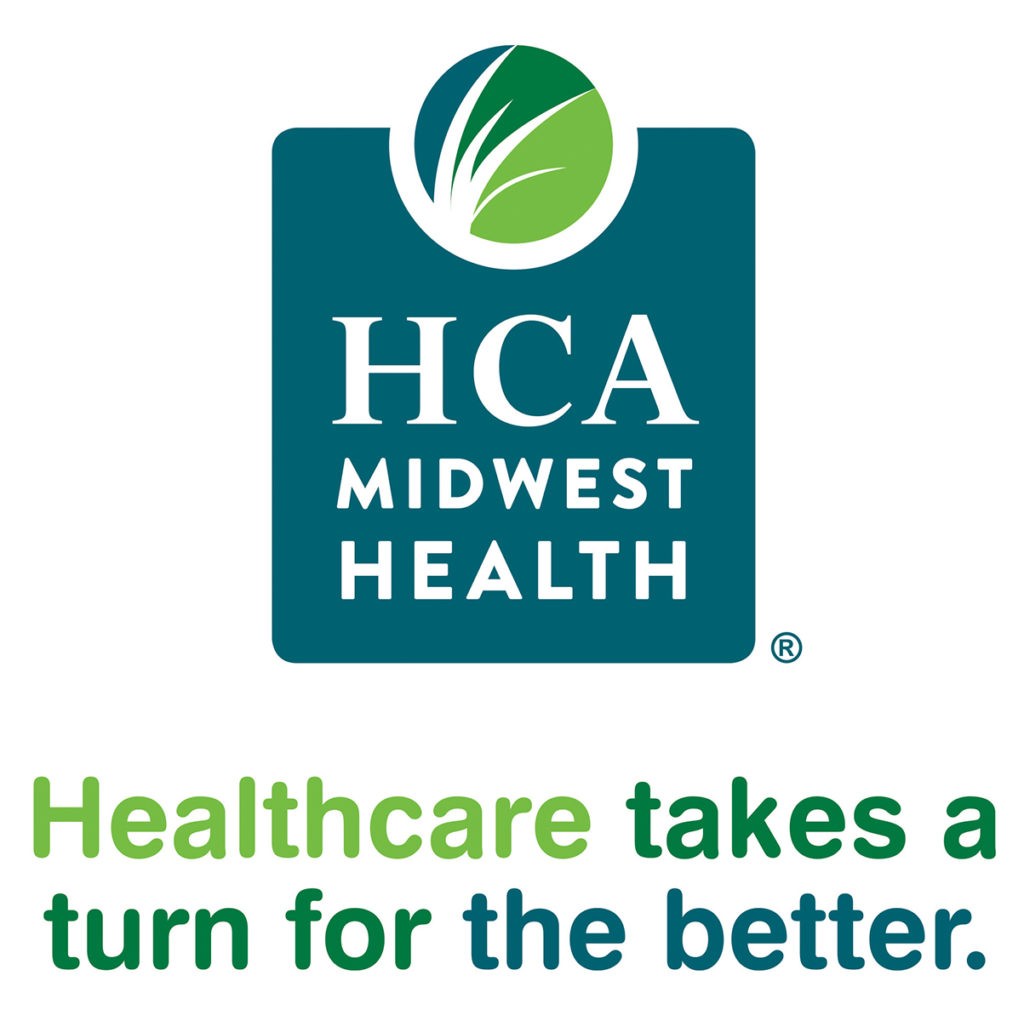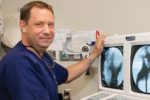The Doctor is In

HCA Midwest Health Specialists Answer Your Questions
Specialty care requires a healthy dose of specialty expertise – quality medicine delivered by knowledgeable, skilled and compassionate doctors.
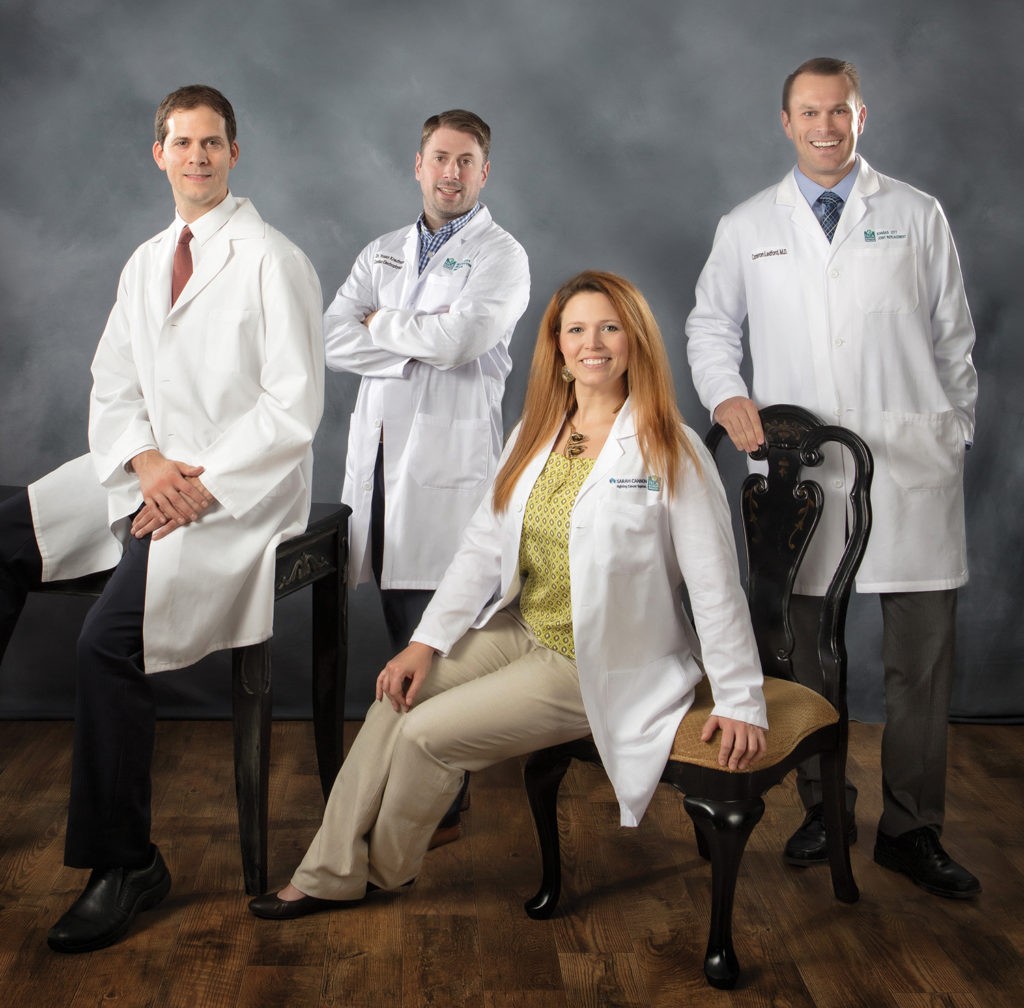
As a patient, you understand the value of the training and experience a specialist brings to bear for your specific needs. We do too. We also understand the importance of choosing a specialist you can trust. That’s why HCA Midwest Health offers you access to the area’s largest network of board-certified or board-eligible physicians, including 2,000 experts trained in 80-plus specialties.
With over 150 locations throughout the region, our team is committed to providing the highest level of care in the communities where you live and work. Our primary care physicians work seamlessly with their specialty colleagues to ensure you receive the most appropriate and easily-accessible care for your unique situation.
HCA Midwest Health specialists represent a range of medical specialties. Many of our physicians are considered leaders in their fields with research and academic experience complementing their patient care expertise. Renowned speakers and lecturers, our physicians publish frequent papers, spearhead countless clinical trials, and teach future generations of healthcare providers – all to further medical knowledge and quality care.
We invite you to get to know some of our specialists featured in the following pages. These physicians have compiled answers to some of the most common questions they hear from patients like you.
Learn more about HCA Midwest Health specialists at mymidwestphysician.com
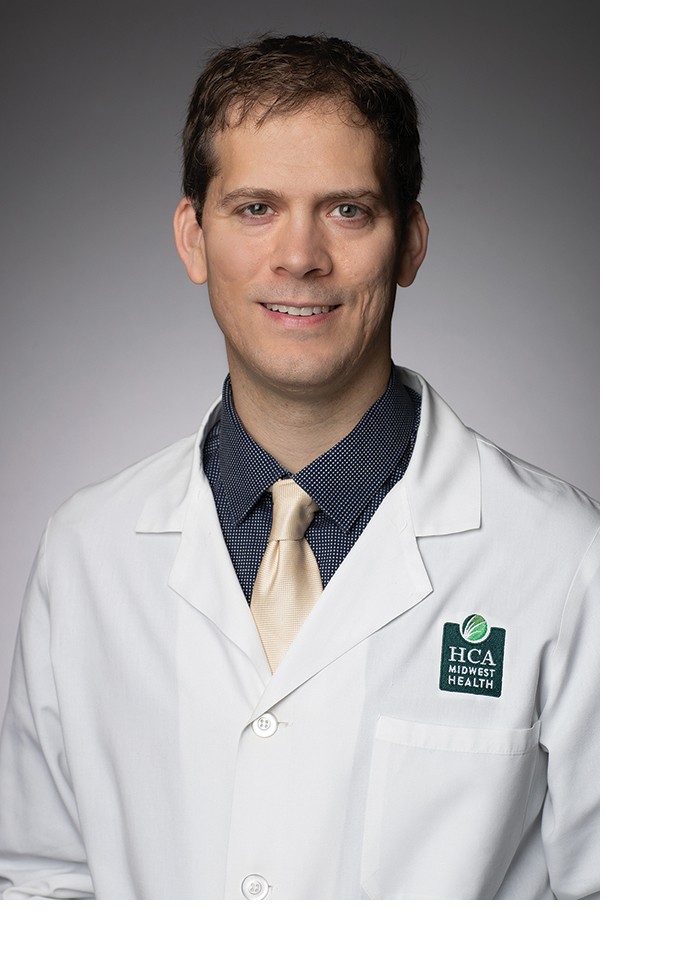 Darcy Shaw, MD
Darcy Shaw, MD
Colorectal Surgery
Q. Why was the recommendation changed from age 50 to 45 to begin colon cancer screening?
A. The goal of screening earlier is to identify polyps before they become cancers or symptomatic when they are easier to treat. Recently, there has been a rise in colon and rectal cancers among younger adults. There may be many factors explaining this including the rising rates of obesity, consumption of processed foods and poor exercise patterns. Another reason could be the rise in colorectal cancer awareness. In the past, colorectal cancer was thought of as an older person’s disease so symptoms may have been brushed off thinking they were just hemorrhoids. Now if you have symptoms it warrants further work up, no matter how old you are.
It is important to note that this guideline is for average risk patients without symptoms. Symptoms such as blood in the stool, change in bowel habits or abdominal pain should prompt early attention. Patients with a family history of cancer should also discuss early screening with their doctor. To assess your risk, take our free online health risk assessment at hcamidwest.com/healthrisk and discuss the results with your doctor.
About… Dr. Darcy Shaw is a board-certified, fellowship-trained colorectal surgeon with Colorectal Surgery Associates practicing at their Lee’s Summit and Independence, MO offices. There are additional offices located in Gladstone, Overland Park and Leawood. Dr. Shaw is experienced in robotic and laparoscopic procedures, endoscopy, colorectal disease, single site incisions and colorectal cancer treatment. Dr. Shaw performs surgery at Lee’s Summit Medical Center and Centerpoint Medical Center.
Colorectal Surgery Associates
2000 SE Blue Pkwy., Suite 120, Lee’s Summit, MO 64063
19550 E. 39th St., Suite 320, Independence, MO 64057
(816) 941-0800 | csakc.com
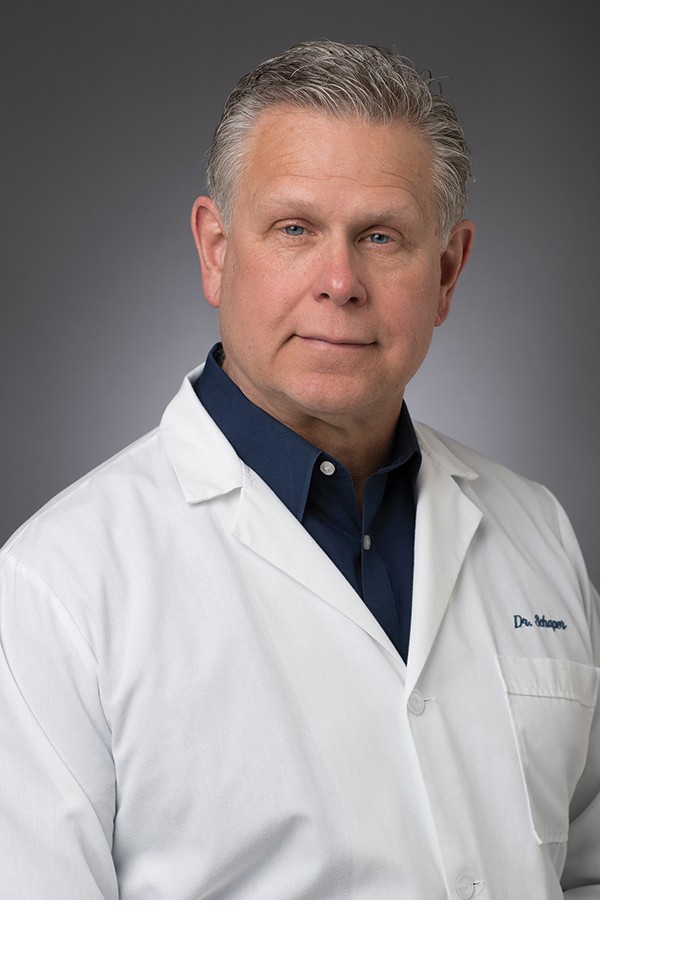 Dan Schaper, MD
Dan Schaper, MD
Orthopedic Surgery
Q. Can I tell if hip joint pain is due to arthritis?
A. Hips are built to take a good bit of wear and tear over the years, but eventually age, repetitive motion and overuse catch up, leaving nearly one in four adults over age 60 with hip pain of some type.
About 30 to 50 percent of adults over 65 suffer from osteoarthritis, which causes inflammation and cartilage breakdown. With arthritis the onset of pain is usually not sudden. The pain increases over time and makes it difficult to move without stiffness or discomfort. Many people experience pain in the front of the hip or groin, on the outside of the hip or over the hip bone on the leg. The condition is usually aggravated by extended walking or other activity.
However, these symptoms can also be indication of other issues such as a sprain, strain or tear from muscle or tendon overuse. You don’t have to live with hip pain. There have been many recent advances in hip replacements including implants and technology that can lead to a better fit and function, as well as a minimally-invasive approach that can lead to a quicker recovery. But not all hip pain requires surgical intervention. Sometimes we are able to treat it in our office with medication and physical therapy. Discuss your symptoms with an orthopedic surgeon to find out what treatment plan is right for you.
About… Dr. Dan Schaper is a board-certified orthopedic surgeon with Research Orthopedics and Sports Medicine at Research Medical Center-Brookside. Dr. Schaper’s areas of clinical focus include general orthopedics, sports medicine and joint replacement. He offers more than 30 years of patient care experience and has been recognized as a Healthgrades Honor Roll physician.
Research Orthopedics and Sports Medicine
6675 Holmes Rd., Suite 400, Kansas City, MO 64131
(816) 276-7410 | researchorthopedic.com
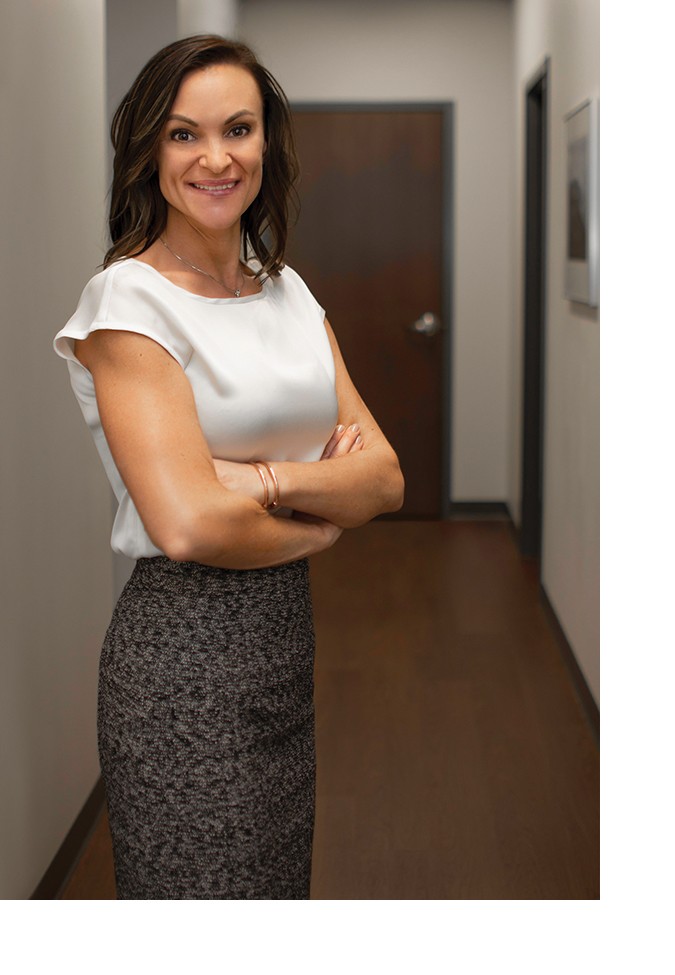 Kayla Barnard, MD
Kayla Barnard, MD
Breast Surgery
Q. As technology advances, how has breast cancer surgery changed?
A. In the past, standard treatment of breast cancer was to remove the entire breast, chest, wall muscle and all the lymph nodes under the arm. Over the years, research has shown us that we don’t need such radical surgeries to achieve the same survival especially when combined with other treatment such as radiation. More recent techniques have allowed improved cosmetic outcomes with breast conservation and in some cases saving the skin and/or nipple with mastectomy.
The newest techniques, still not widely available, allow breast cancer surgeries to be completed with even more cosmetically pleasing results, still without compromising clinical outcomes. By utilizing these techniques, women have little to no visible scarring. This can help ease the emotional impact of breast cancer surgery.
About… Dr. Kayla Barnard is a board-certified, fellowship-trained breast surgeon with Midwest Breast Care at Menorah Medical Center. Dr. Barnard offers clinical expertise in breast cancer surgical procedures with training in oncoplastics, including the newest technique that doesn’t leave a visible scar.
Midwest Breast Care
12140 Nall Ave., Suite 200A, Overland Park, KS 66209
(913) 906-9372 | midwestbreast.com
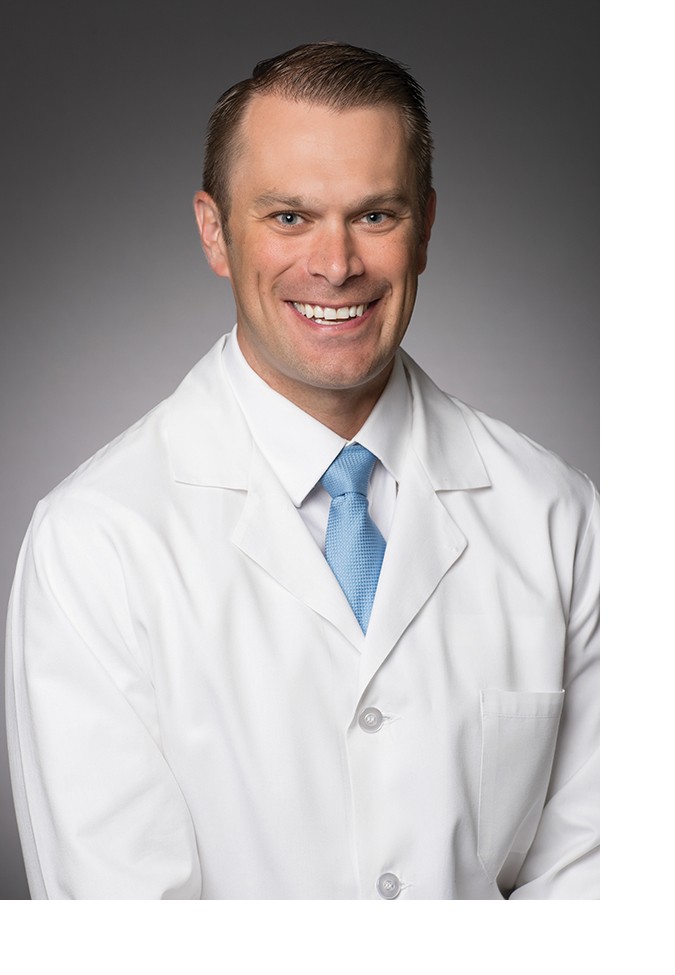 Cameron Ledford, MD
Cameron Ledford, MD
Joint Replacement Surgery
Q. How has the use of robotic technology changed how knee replacements are being done?
A. Robotic arm-assisted knee replacements not only allow surgeons to develop an accurate, customized surgical plan for each patient, but also allows for precise execution of that plan during the procedure. And although knee replacement remains a major surgery, robotic technology appears to give us great opportunity to potentially improve patient outcomes, both in faster short-term recovery as well as improving the longevity of the implants. Many of my knee replacement patients have had good early success and often say that they don’t know why they lived with severe pain for so long.
Q. How does a patient-centered approach to joint replacement lead to better outcomes?
A. At Kansas City Joint Replacement, we take the time to get to know our patients and their goals. We work to customize a treatment plan (either non-surgical or surgical) with ongoing communication and collaboration with the patient’s primary care physicians. If a surgical decision is made, patients are educated regarding the surgery and recovery as well as undergo an extensive perioperative medical evaluation to ensure the safest and best outcomes are provided to each patient. This model is a driver for our success at Kansas City Joint Replacement with patients experiencing quicker, safe recovery and rehabilitation.
About… Dr. Cameron Ledford is a fellowship-trained orthopedic surgeon specializing in adult lower extremity reconstruction. A graduate of the prestigious Mayo Clinic Adult Lower Extremity Reconstruction Fellowship and chief resident during his orthopedic surgery residency at Duke University Medical Center, he is extremely passionate about finding positive ways to improve the health and wellness of his patients. Dr. Ledford performs surgery at Menorah Medical Center.
Kansas City Joint Replacement
5701 W. 119th St., Suite 410, Overland Park, KS 66209
(913) 345-6901 | jointreplacementkc.com
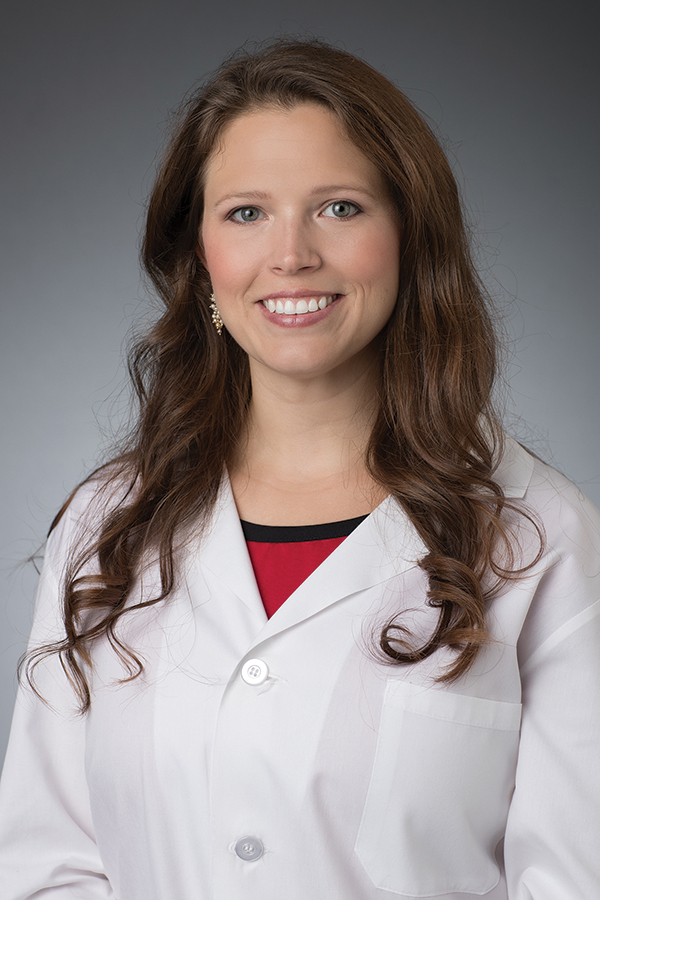 Blair Smith, MD
Blair Smith, MD
Gynecologic Oncology
Q. Who is at risk for gynecologic cancer?
A. All women are at risk for gynecologic cancers. Your gynecologist plays a huge role in the prevention and early detection of cancer. They can educate you on the factors that can increase your risk, such as exposure to human papillomavirus (HPV), obesity, tobacco use, or inherited cancer syndromes, like BRCA mutation carriers or Lynch syndrome. They also perform regular screenings, including a Pap smear to detect cancer cells (or pre-cancerous cells) early and can refer you for genetic risk assessment and counseling if you have concerns about your personal or family history of cancer.
Treatment for gynecologic cancer may involve a combination of chemotherapy, radiation therapy and/or surgery—ranging from the LEEP procedure to remove abnormal cells on the cervix to robotic hysterectomy performed through a few small incisions.
About… Dr. Blair Smith is a gynecologic oncologist with Sarah Cannon Cancer Institute at Research Medical Center. Her clinical expertise includes minimally invasive surgery, complex pelvic surgery, chemotherapy for the treatment of gynecologic cancers, and gynecologic cancer survivorship. She has been recognized with multiple awards for her compassionate care, community service, and clinical skills. Dr. Smith has written extensively for peer-reviewed publications and served as a reviewer herself for the American Journal of Obstetrics and Gynecology.
Sarah Cannon Cancer Institute at Research Medical Center
2340 E. Meyer Blvd., Suite 546, Kansas City, MO 64132
(816) 926-0777 | researchmedicalcenter.com/cancer
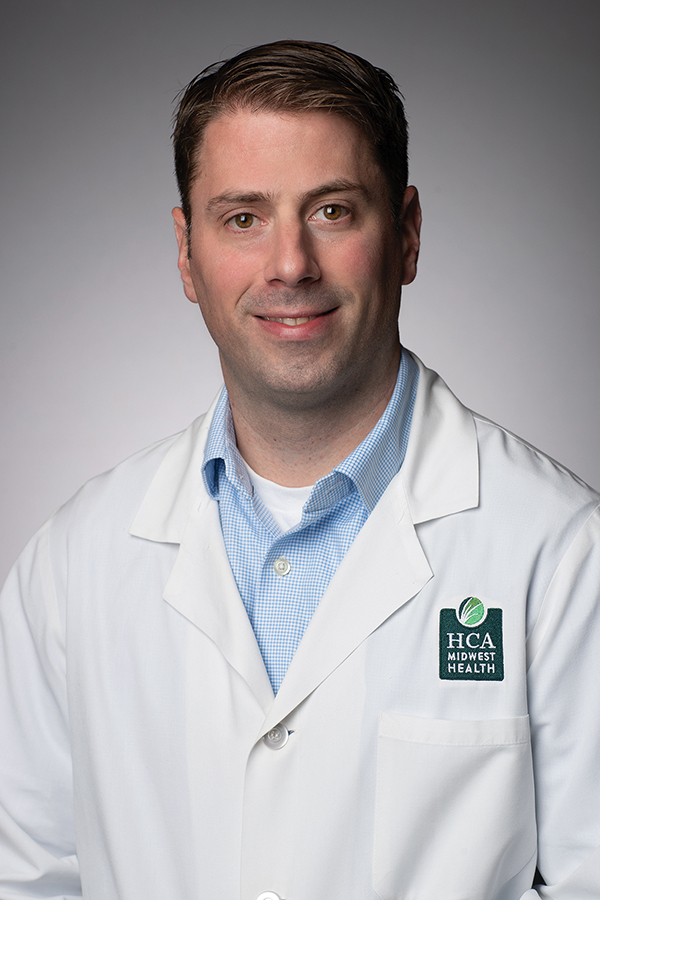 Yoaav Krauthammer, MD
Yoaav Krauthammer, MD
Heart Care
Q. What is one of the most common heart conditions that people can have without realizing it?
A. Atrial fibrillation (afib) is the most common heart arrhythmia in the US, affecting approximately 2-3 million. People may notice symptoms like dizziness, fast heart rate, palpitations or excessive shortness of breath while active. If you experience any of these symptoms, talk to your doctor. They can run tests to rule out other causes and confirm the diagnosis.
There is no one size fits all approach to treatment. Each person requires a personalized treatment plan to lessen or cure their symptoms and reduce their risk of stroke. A few years ago, this condition was considered incurable. However, a relatively new, minimally-invasive procedure, afib ablation, is offering patients symptom relief within just a few months. After ablation, the majority of patients experience a significant improvement in their quality of life. Many patients are able to stop taking their rhythm medications in about 2-3 months and their blood thinners in about 6 months.
About… Dr. Yoaav Krauthammer is a board-certified, fellowship-trained cardiac electrophysiologist with the Kansas City Heart Rhythm Institute at HCA Midwest Health. Dr. Krauthammer is affiliated with the HCA Midwest Health network of hospitals located throughout the Kansas City, MO and Overland Park, KS metro areas. With nearly 10 years of experience and extensive specialized arrhythmia training, he has clinical expertise and interests in electrophysiology, complex arrhythmia management, heart ablation, pacemaker and other device implantation and management. He is a nationally recognized speaker and researcher in his field.
Kansas City Heart Rhythm Institute
2330 E. Meyer Blvd., Suite 509, Kansas City, MO 64132
(816) 276-4800 | kcheartrhythm.com
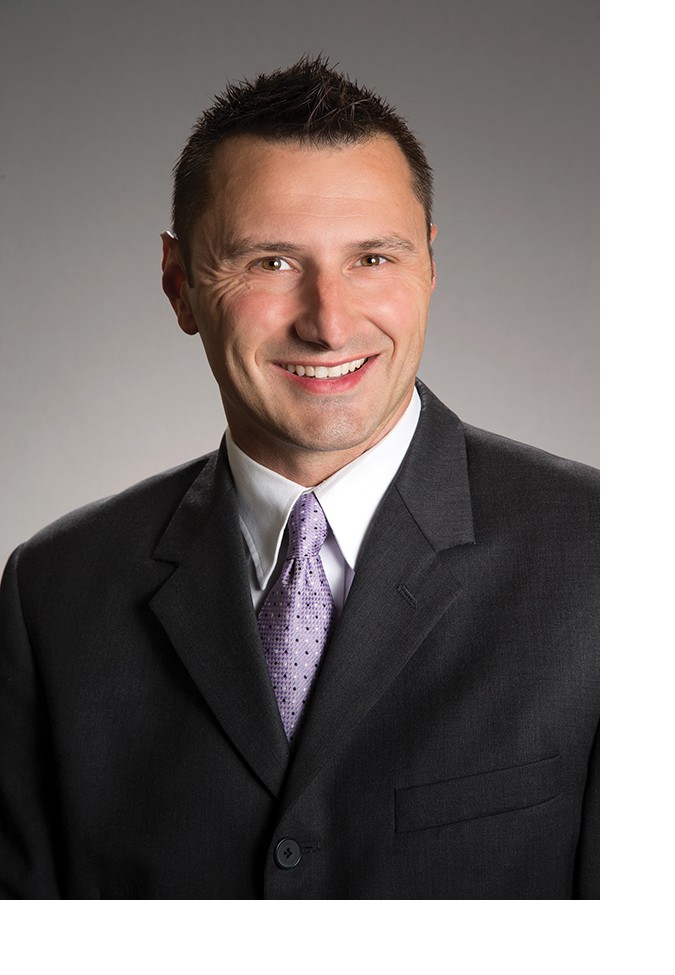 Austin Lehr, DO
Austin Lehr, DO
General Surgery
Q. How is robotic surgery used to treat hernias?
A. Robotic surgery is rapidly becoming a mainstay in the treatment of ventral abdominal wall, inguinal (groin) and hiatal (heartburn related) hernias. The technology applies the minimally invasive methods of laparoscopic hernia repair and adds 3D visibility, wristed motion of the instruments and enhanced magnification of anatomical structures to allow a more precise surgery with less bleeding and less trauma to the abdominal wall. This translates into less pain and faster recovery. It allows more complex hernias to be addressed in minimally invasive fashion, often on an outpatient basis. My experience is that in using a robotic technique, patients need significantly less pain medication with both the ventral (umbilical, incisional, epigastric) and inguinal hernia repairs and are able to return to work and normal activity more rapidly.
About… Dr. Austin Lehr is a board-certified general surgeon with Kansas City Vascular and General Surgery offering experience in many types of surgery, including minimally invasive robotic and advanced laparoscopic procedures, weight loss procedures, complex hernia repairs and burn treatment. Dr. Lehr has clinical interests in colon and breast surgery, bariatric and endocrine surgeries, among other areas. He performs surgery at Belton Regional Medical Center, Menorah Medical Center and Research Medical Center.
Kansas City Vascular and General Surgery
17067 South Outer Rd., Suite 200, Belton, MO 64012
5100 W. 110th St., Suite 300, Overland Park, KS 66211
(913) 754-2800 | kcvascularandgeneralsurgery.com
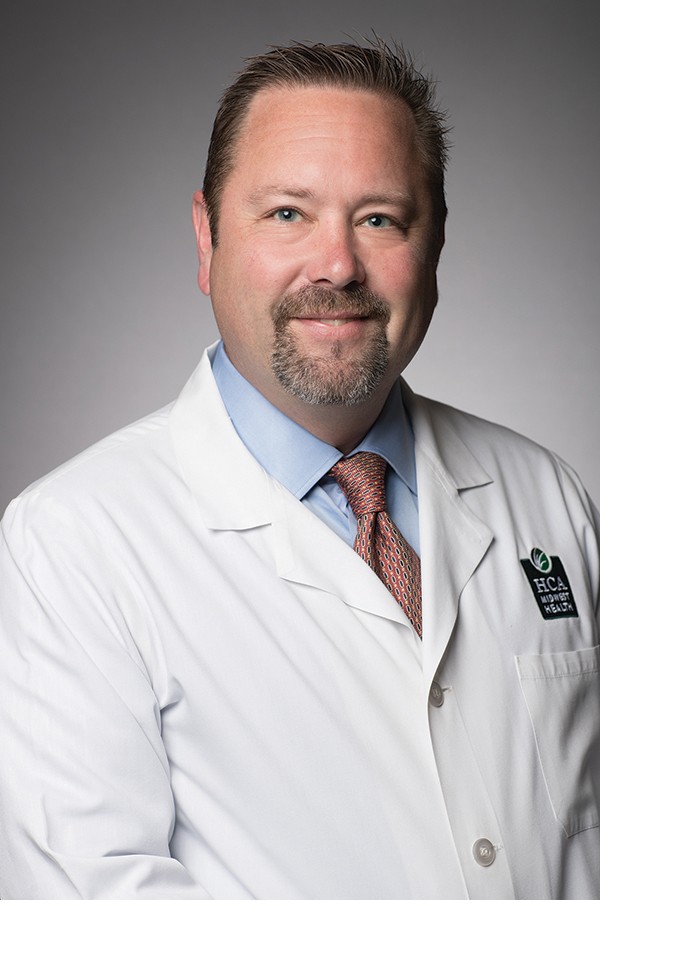 James L Marcum, MD
James L Marcum, MD
Heart Care
Q. According to the new guidelines, how do I know if I have moved into the “high blood pressure” category?
A. Medicine is ever-changing. Ongoing clinical trials afford us more insight into the treatment of all disease processes, including hypertension. The newest guidelines for the treatment of hypertension are more stringent, with a focus on cardiovascular risk reduction. The classification for hypertension was lowered from 140/90 to 130/80. That stated, the “art” of medicine always balances with the science of medicine, thus treatment of a process as common as hypertension can be more complex than anticipated. We work toward achieving that balance, so that our patients are afforded not only the best cardiovascular care, but also the best quality of life.
Hypertension is the most common reason patients visit their doctor and the most common reason for the use of prescription drugs in the United States. It is the most important modifiable risk factor for the prevention of coronary artery disease and also has a significant impact on the risk for heart failure, stroke and chronic kidney disease. Talk to your doctor about your blood pressure. He or she can develop a personalized treatment plan to help you reduce or prevent high-blood pressure.
About… Dr. James L. Marcum is a board-certified, fellowship-trained cardiologist with Midwest Heart & Vascular Specialists and is affiliated with HCA Midwest Health hospitals, practicing at the Overland Park, KS, Lee’s Summit and Iola, MO locations. Dr. Marcum has nearly 20 years of experience with areas of focus in general cardiology, diagnosing and treating the entire range of heart conditions.
Midwest Heart and Vascular Specialists
12200 W. 106th St., Suite 320, Overland Park, KS 66215 | (913) 749-6948
2000 SE Blue Pkwy., Suite 250, Lee’s Summit, MO 64063 | (816) 833-0381
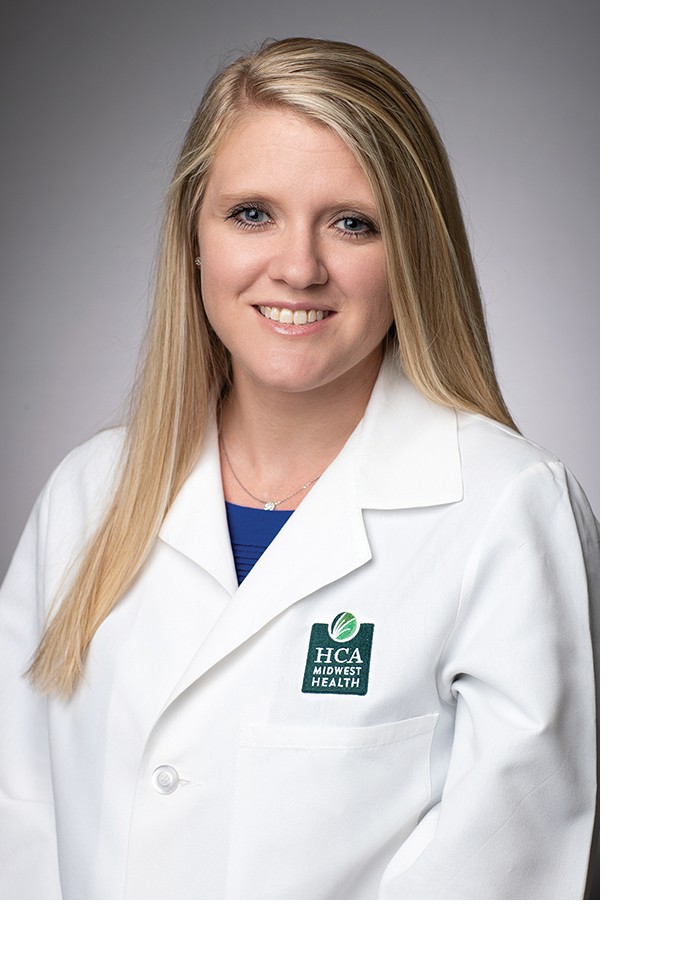 Amanda Sundling, DO
Amanda Sundling, DO
OB/GYN
Q. How has hysterectomy changed in the last few years?
A. Newer surgical techniques like robotic surgery are allowing more women to undergo minimally invasive forms of hysterectomy. A surgery with smaller incisions means less blood loss, less pain (and need for pain medication) and less time in the hospital. This allows for a faster recovery and a decrease in complications.
Historically, many women in their mid 40’s and older had their ovaries removed at the time of hysterectomy. Recent evidence has shown that removing the fallopian tubes will actually reduce the risk of ovarian cancer. This avoids the risks of premature menopause such as death from heart disease, osteoporosis, dementia, anxiety and depression. More often, women in their 40’s and 50’s are choosing to keep their ovaries after carefully reviewing the risks and benefits with their physicians.
About… Dr. Amanda Sundling is a board-eligible OB/GYN with Healthcare for Women Medical Group in Independence and Blue Springs, MO. She is affiliated with Centerpoint Medical Center. Dr. Sundling received numerous academic and leadership awards and honors over the course of her training, and served as chief resident and teaching assistant for other medical students. Prior to becoming a physician, Dr. Sundling was a hospital-based nursing assistant, a role that enabled her to experience all aspects of patient care. She brings that broad perspective to her OB/GYN patients and is committed to treating the whole patient in a preventive, wellness-oriented manner.
Healthcare for Women Medical Group
19550 E. 39th St., Suite 310, Independence, MO 64057
725 N. 7 Hwy, Blue Springs, MO 64014
(816) 350-1200 | hfwdocs.com
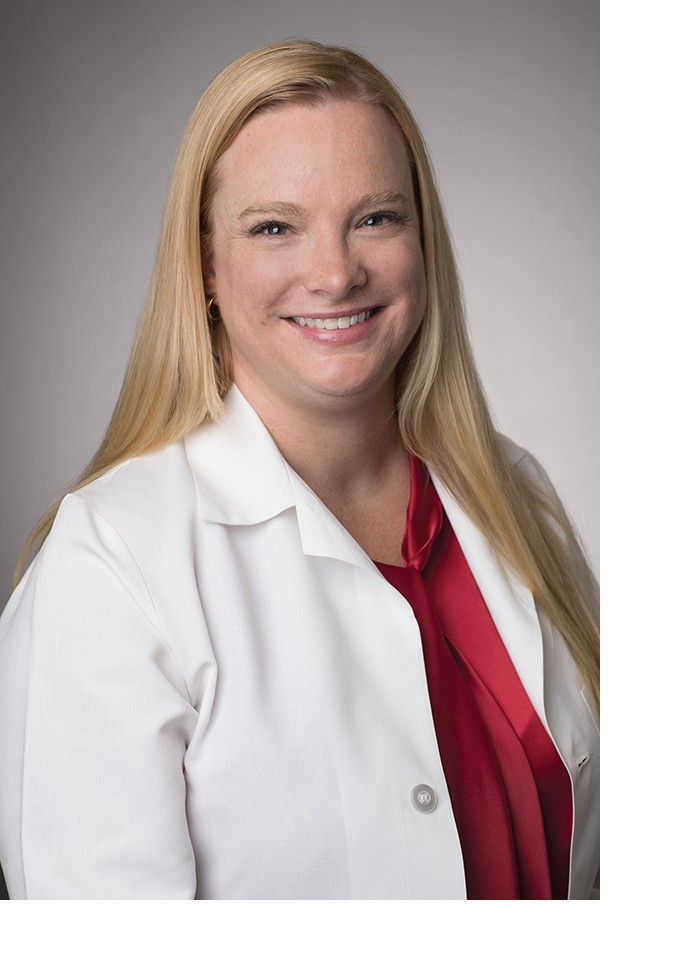 Tricia Fairchild, MD
Tricia Fairchild, MD
Family Medicine
Q. Why should I have a primary care doctor if I am mostly healthy?
A. A primary care doctor acts as a “co-captain” with you in managing your health. They form a relationship with you to help manage your health over time.
Annual exams are a chance to check-in with you and do preventive screening tests. By being able to see the overall picture of your health, knowing you and your medical history, we can help prevent disease, reduce health risks and keep you healthy over time. Consider establishing a relationship with a primary care physician early in your adult life. It can prove to be extremely beneficial as you age.
About… Dr. Tricia Fairchild is a board-certified family medicine physician with Lee’s Summit Family Care. She is affiliated with Lee’s Summit Medical Center in Lee’s Summit, MO. In addition to her board certification in family medicine, Dr. Fairchild also has special training in urology and surgery. Her current practice includes outpatient family medicine for patients of all ages, wound care and residency teaching. She has clinical interests in adolescent medicine, women’s health, sexual health and medical education. Dr. Fairchild is a passionate advocate for, and partner with her patients.
Lee’s Summit Family Care
600 NW Murray Rd., Suite 210, Lee’s Summit, MO 64081
(816) 524-2626 | leessummitfamilycare.com
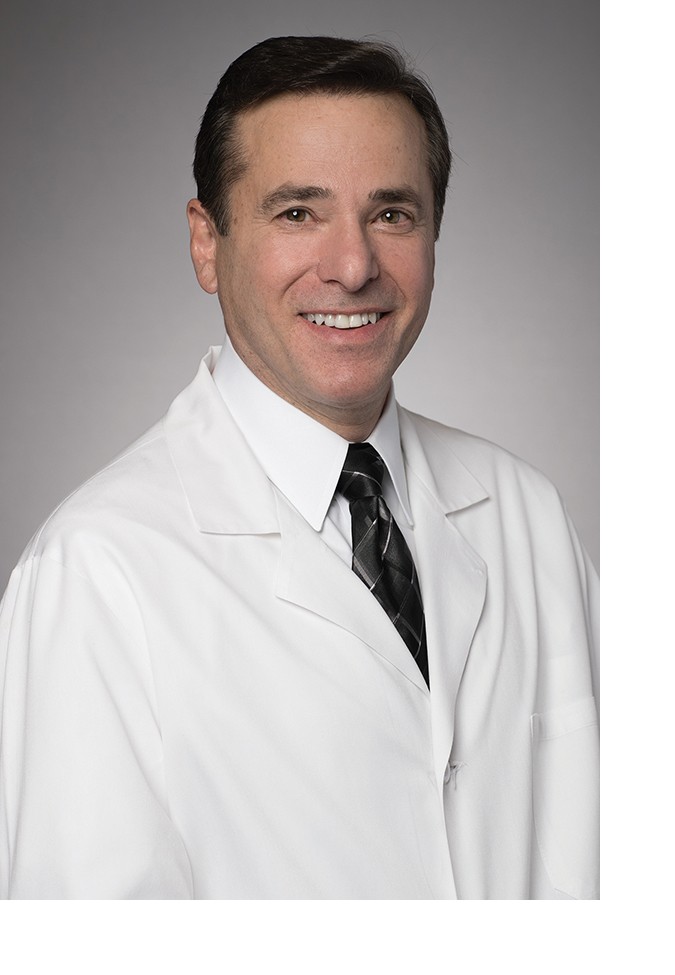 Roger de la Torre, MD
Roger de la Torre, MD
Bariatric Surgery
Q. How can weight loss surgery help me get rid of my Diabetes medications?
A. There are studies that have validated that bariatric surgery can improve or completely resolve Type 2 Diabetes in about 85% of cases. These same studies also suggest that bariatric surgery can be attributed to helping reduce or eliminate other chronic health conditions such as sleep apnea, high cholesterol and heart disease. More has yet to be learned, but this is exciting news for patients who are looking to make a significant change to their overall health.
In fact, weight loss, even 10 to 15 pounds can positively affect a person with Type 2 Diabetes by directly influencing the amount of oral medication or insulin that is required to keep blood sugar levels in check. We have seen patients who, immediately following weight loss surgery and before any weight loss has been realized, need only half their usual dose of diabetes medications and some have even completely gone off of all diabetes medications.
Our approach to weight loss has changed drastically over the last few years, and with the addition of new minimally-invasive and non-surgical techniques we have been able to help patients lose as much as 80 to 100 pounds in less than a year while at the same time helping to give their life and health back.
About… Dr. Roger A. de la Torre is a board-certified surgeon with the Surgical Weight Loss Institute of Kansas City. He is affiliated with Menorah Medical Center. Dr. de la Torre offers his patients a wealth of experience and expertise in bariatric surgery, having worked in the field for more than 15 years. He has been the recipient of numerous awards, most notably a U.S. News and World Report High Performing Specialty Award, along with others recognizing his surgical and overall care skills.
The Surgical Weight Loss Institute of Kansas City
5701 W. 119th St., Suite 305, Overland Park, KS 66209
(913) 345-6960 | surgicalweightlossinstitutekc.com
